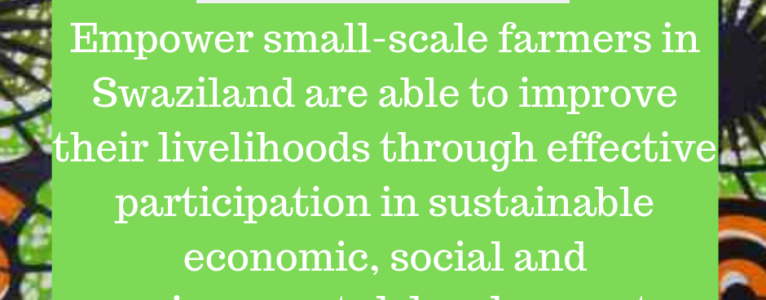During 2015 – 2017 an el Nino drought proved to be the worst drought since 1992. Even though Eswatini has experience with droughts we are still struggling to have all parts of the country fully prepared to handle the conditions. Drought negatively impacts Eswatini so greatly because much of its economy depends on agriculture. An assessment revealed that household participation in agriculture is less than 30%, with a national average of 25.3%. As a result, the Eswatini is now dependent on South Africa for its basic food needs. Droughts are now becoming more frequent due to the changing climate which will be detrimental to the economy, particularly on rural livelihoods.

PELUM Eswatini is an umbrella organization comprising NGOs, CSOs, businesses, and individuals who are involved in agriculture or environmentalism in Eswatini. Together, we work in different ways to reach and help smallholder farmers and create food stability. Because of our member organizations, our reach extends across the country and the number of households we can help is multiplied.
PELUM Eswatini Exists to Serve Eight Main Functions
- To improve the livelihoods of marginalized communities in Eswatini through poverty alleviation programs that promote food security and local participation through the integration of local knowledge systems and sustainable development.
- To develop and institutionalize campaign, advocacy, and lobbying programs and activities for policies that are responsive to smallholder farmers.
- To participate in the development of alternative agricultural and rural development models.
- To promote the sharing of both information and successful farmer experiences and innovation for wider practice through documentation and dissemination of appropriate information in the area of participatory ecological land use management.
- To assist members in the development of training tool kits and manuals on skills development, monitoring and evaluation, and documentation procedures in participatory ecological land use management
- To ensure the strengthening of PELUM Eswatini member organizations and facilitation of any other useful links between members.
- To promote the development of skills and training in the resolution of disputes and conflicts in land-use management.
- To contribute to the empowerment of smallholder farmers (men and women) to have access and control over a wider range of appropriate seed and planting materials.


